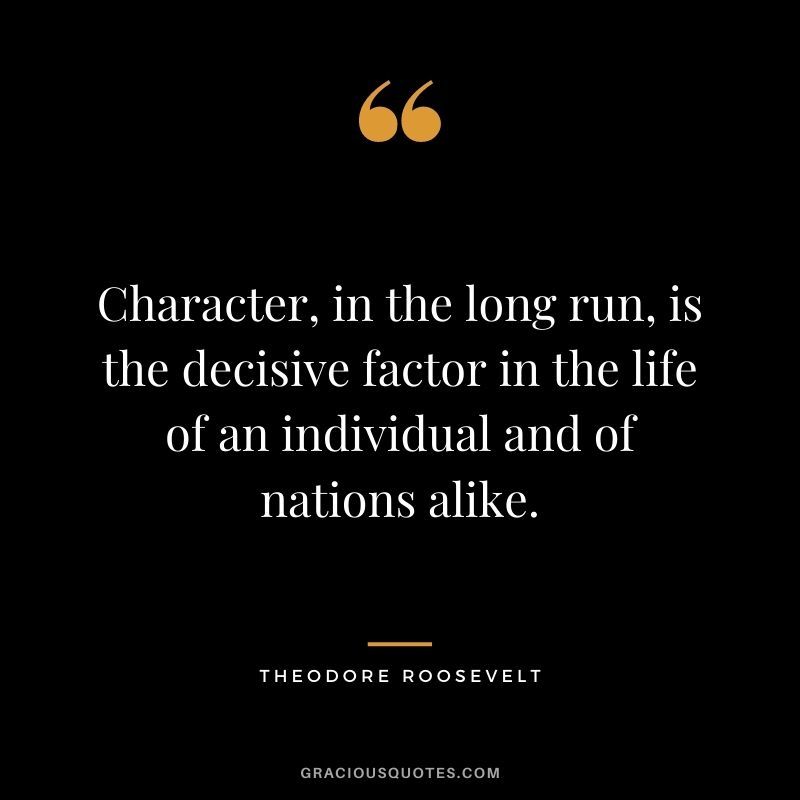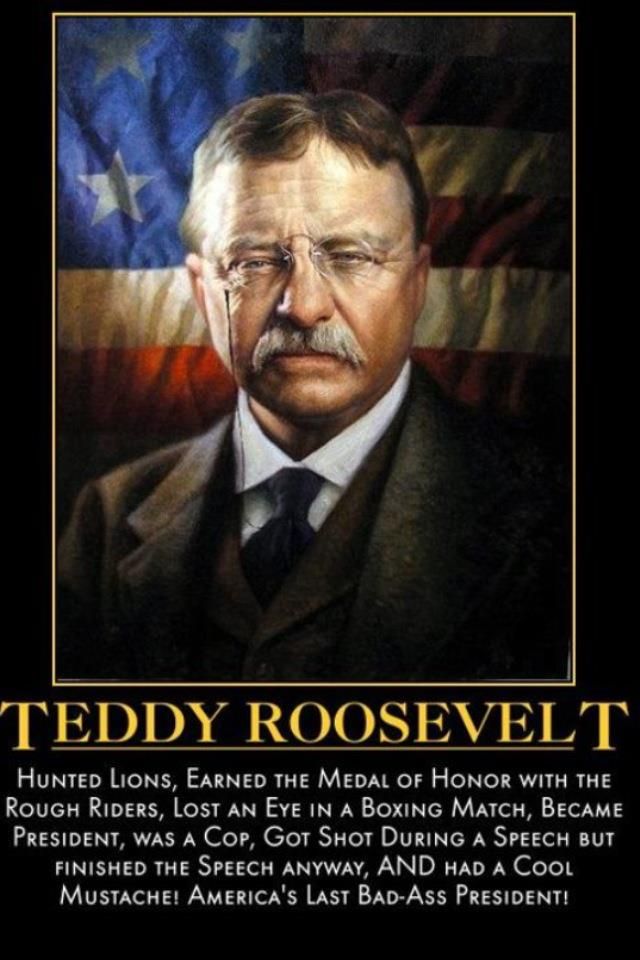| Issue (linked to past articles) | Harris | Trump |
| Political Reform | 0 | – 5 |
| Foreign Policy | – 6 | + 1.5 |
| The Square Deal | + 4 | + 2 |
| Conservation & Environment | +6 | – 5 |
| A Strong America | – 7.5 | – .5 |
| Political Philosophy | – 2.5 | + .5 |
| Character | – 3 | – 5 |
| FINAL SCORE | – 9 | – 11.5 |
This series of articles was designed to provide an ideological structure for evaluating the presidential candidates in the face of a campaign filled with pandering and personal invective. I believed in doing so through the metaphorical eyes of fellow progressive nationalist Theodore Roosevelt. While this analysis generated a numerical score, I recognize that it is based on a series of subjective judgements. You may believe other issues should have been included or the issues weighted differently and thus come to a very different conclusion. I hope it at least was helpful in cutting through the noise of the campaign and creating a focus on real issues.
Nevertheless, based on these metrics, the scores of the two candidates are appalling. Neither come close achieving the nationalist ideals of TR. We thus are not choosing the more nationalist candidate. We are not even choosing the least globalist candidate. We are left with choosing the candidate who would do the least harm to the nation and the nationalist cause. Once again, I cannot endorse either one. Yet, as I grudgingly accepted in the introduction to this series, choose we must among these two, while being clear eyed about the realities of the choice. At the same time, we remember we are electing a new Congress as well. Here is where the genius of our Constitution can save us from a disastrous result.
A Personal Decision
The introductory post in the series cited TR’s comment about a vote being like a rifle. My vote will arguably be more akin to a shotgun than a rifle. Nevertheless, and relying on the above results, I will be voting for Vice President Harris and then voting Republican for the House and Senate.
The standard response of most partisans to this ticket-splitting is “But nothing will get done”. This is not true. For example, the Trump tax cuts will expire of their own accord at the end of next year since it is highly unlikely the two sides can agree on successor legislation. This resulting tax increase, combined with the Republican resistance to new spending, will keep the budget deficit in check. As discussed earlier in the series, a Harris Presidency would continue the aggressive antitrust and consumer protection agenda of the Biden Administration and its climate and environmental program.
However, the voting index also shows her administration would require close supervision on curbing the administrative state, immigration and foreign policy. The Congress can and should hold a President Harris’s feet to the fire on these issues. On administrative power, the Supreme Court ‘s Loper Bright decision ending deference to agency interpretation should start a process of specifying agency jurisdiction in more detail lest more rules be struck down. The Republican House has been eager to challenge open immigration policies by impeaching Homeland Security Secretary Mayorkas. Meanwhile, an opposition Senate would hopefully create a check on a continuation of Biden’s liberal interventionist foreign policy. Harris cabinet nominees also would be subject to the advice-and-consent authority of the Senate. There would be sharp and sometimes unpleasant policy disagreements that could create progress on nationalist legislation or, at the very least, highlight the issues for the American people to eventually resolve. In a constitutional structure that encourages consensus, the debate would begin building the necessary support for a true nationalist presidency in 2028.
In contrast, the first Trump Administration damaged the nationalist brand with his erratic behavior and autocratic methods. He has little patience or understanding of the need for consensus in the American constitutional system. Instead of restraining executive administrative power, he prioritized policies he could enact by executive fiat and failed at enacting lasting legislative changes. Immigration is a classic example. Trump certainly controlled the border as president but failed at passing a comprehensive immigration reform through a Congress controlled by his own party that could have prevented the Biden-Harris border fiasco. Thus, he is unlikely to unify the nation around the extent of change he is promising while risking future broader support for such change.
As TR said, you do what you can with what you have. Politics in a democracy is the art of the possible and not necessarily the perfectly correct. This election is proving to be an extreme and heart-wrenching example of these realities. As American progressive nationalists, we believe in this democracy and that we can succeed in it. Let us keep the faith and continue to build support for our cause. Now (if you haven’t already done so) get out and vote and God bless America!



